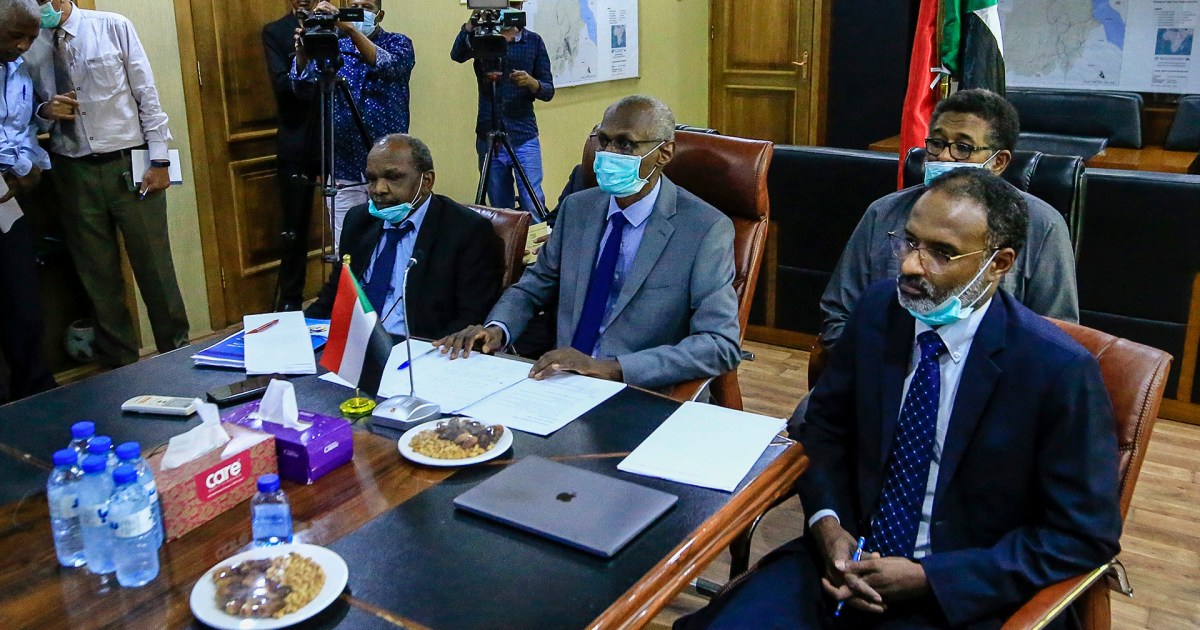On Saturday, a joint trilateral meeting between Egypt, Sudan, and Ethiopia concluded that Khartoum was tasked with preparing a new draft "consensus" document for negotiations on the Renaissance Dam, based on the comments of the three countries.
The negotiations seek - according to a statement issued by the Sudanese Ministry of Irrigation - to reach an "integrated agreement" regarding "the technical aspects of filling and operating the Renaissance Dam in conditions of normal rainy seasons, one dry season, long successive dry seasons, and permanent operating methods."
According to the ministry’s statement, it was agreed that the three parties would return to negotiations on Monday afternoon to discuss the draft and assess the negotiation process and subsequent steps.
The statement stated that during the sessions, there was an extensive and heated discussion on the legal aspects of the agreement that the three countries are working to reach.
For its part, the Egyptian Ministry of Irrigation said that an agreement was reached to hold a meeting on Monday, during which the course of the negotiations would be evaluated.
The ministry added - in a statement - that Saturday's negotiations revealed that there are many major issues that are still subject to rejection by the Ethiopian side, foremost among which are items that legally obligate the agreement, or establish a legal mechanism to settle disputes that may arise between the three countries.
It also confirmed that Addis Ababa completely refuses to deal with the technical points raised by the Egyptian side regarding measures to confront drought, protracted drought and years of water scarcity.
The statement added that Egypt stressed the necessity of including in the agreement these elements as "basic elements" in any agreement related to the issue of existence affecting the lives of more than 150 million people who are the strength of the Egyptian and Sudanese peoples.
Berhanu Gola, deputy chief of the Ethiopian Staff, had announced earlier that his country would vigorously defend itself and its interests in the Renaissance Dam.
Gula asked - in press statements - Egypt not to adopt what he called "the policy of wars" in order for water to flow in the interests of the two countries.
He reiterated his country's refusal to negotiate sovereignty over the Renaissance Dam, affirming its right to benefit from its waters.
The Deputy Chief of Staff said that his country is capable of defending its interests and facing any threats, considering that the Egyptian vision regarding the dam is "turbulent", and that Cairo adopts the "policy of hostility" for Ethiopia.
Last Thursday, Ethiopia considered that Egypt's approach to trying to resort to the UN Security Council regarding the Renaissance Dam file, "not an indication of transparency and goodwill in the negotiations."
On Wednesday, Sudan also affirmed, in a statement, its adherence to the necessity of the three countries agreeing on any step, and "rejecting any unilateral action."
Cairo fears the potential negative impact of the dam on its annual flow of 55.5 billion cubic meters of Nile water, while Khartoum gets 18.5 billion. But Addis Ababa says it does not aim to harm Egypt's interests, and that the main goal of building the dam is to generate electricity.

